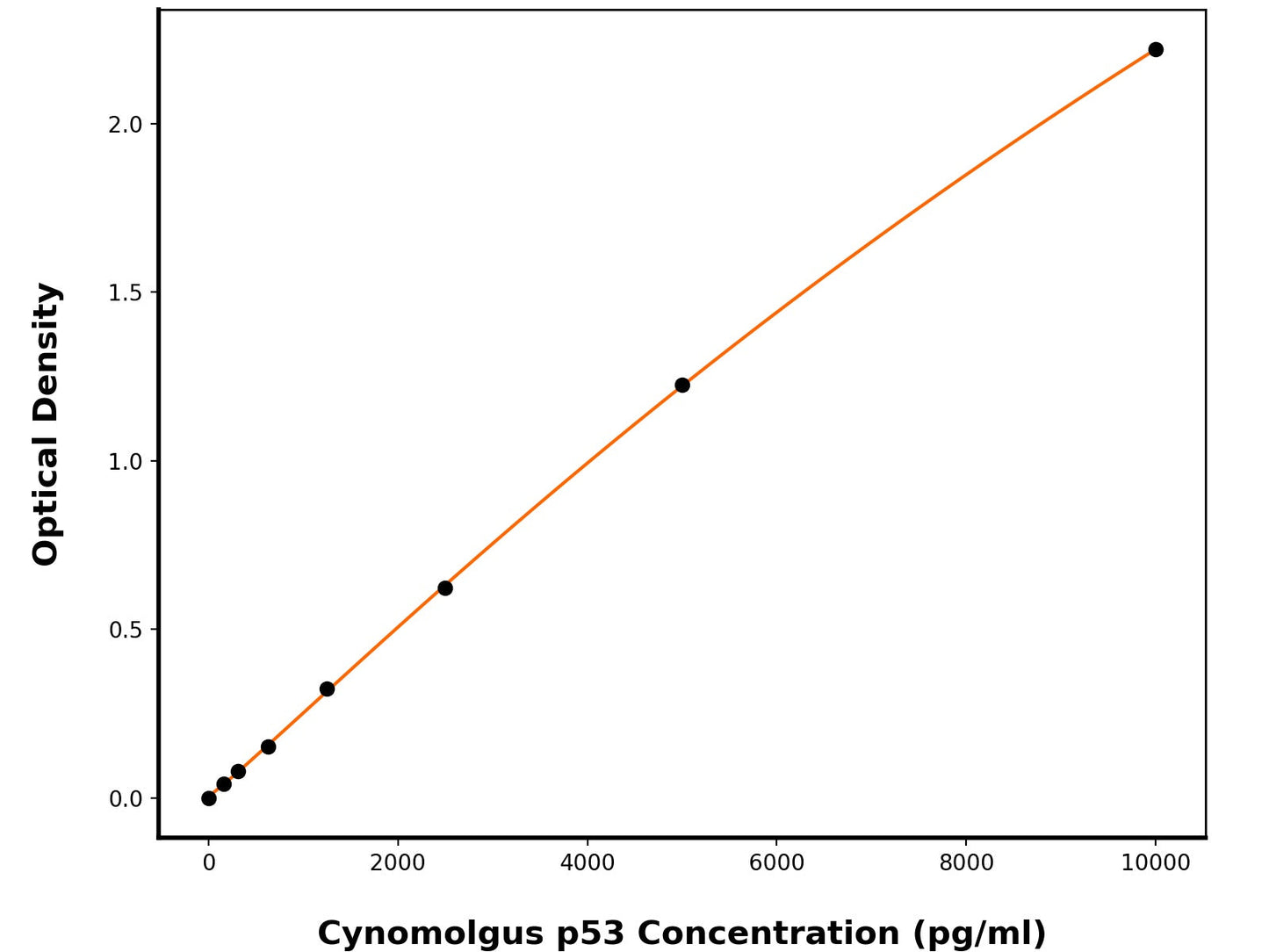1
/
of
1
Cynomolgus Cellular Tumor Antigen P53 (TP53) ELISA Kit
Cynomolgus Cellular Tumor Antigen P53 (TP53) ELISA Kit
This ELISA kit is designed to detect Cynomolgus Cellular Tumor Antigen P53 (Cynomolgus TP53). The assay plate has been pre-coated with mouse anti-Cynomolgus p53 monoclonal antibody. When the sample containing p53 is added to the plate, it binds to the antibodies coated on the wells. Then, a horseradish peroxidase conjugated mouse anti-Cynomolgus p53 Antibody is added to the wells and binds to p53 in the sample. After washing the wells, substrate solutions are added, and the color intensity is directly proportional to the amount of Cynomolgus p53 present. The reaction is stopped by adding an acidic stop solution, and the absorbance is measured at 450 nm.
Catalog No:
BPE364
Regular price
$754.00 USD
Regular price
$580.00 USD
Sale price
$754.00 USD
Unit price
/
per
2 weeks
Couldn't load pickup availability
Product Details
Species Reactivity
Cynomolgus
Sensitivity
30.58 pg/mL
Detection Range
156.25-10000 pg/mL
Sample Type
Serum, plasma, cell culture supernates
Incubation(s)
3.5 hour(s)
Research Areas
Cancer, Cell Biology, Epigenetics and Nuclear Signaling, Neuroscience
Background
p53, also known as Tp53, is a DNA-binding protein which belongs to the p53 family. It contains transcription activation, DNA-binding, and oligomerization domains. p53 protein is expressed at low level in normal cells and at a high level in a variety of transformed cell lines, where it's believed to contribute to transformation and malignancy. p53 (TP53) is a transcription factor whose protein levels and post-translational modification state alter in response to cellular stress (such as DNA damage, hypoxia, spindle damage). Activation of p53 begins through a number of mechanisms including phosphorylation by ATM, ATR, Chk1 and MAPKs. MDM2 is a ubiquitin ligase that binds p53 and targets p53 for proteasomal degradation. Phosphorylation, p14ARF and USP7 prevent MDM2-p53 interactions, leading to an increase in stable p53 tetramers in the cytoplasm. Further modifications such as methylation and acetylation lead to an increase in Tp53 binding to gene specific response elements. Tp53 regulates a large number of genes (>100 genes) that control a number of key tumor suppressing functions such as cell cycle arrest, DNA repair, senescence and apoptosis. Whilst the activation of p53 often leads to apoptosis, p53 inactivation facilitates tumor progression. It is postulated to bind to a p53-binding site and activate expression of downstream genes that inhibit growth and/or invasion, and thus function as a tumor suppressor. Mutants of p53 that frequently occur in a number of different human cancers fail to bind the consensus DNA binding site, and hence cause the loss of tumor suppressor activity. Defects in TP53 are a cause of esophageal cancer, Li-Fraumeni syndrome, lung cancer and adrenocortical carcinoma.
Shipping Condition
Shipped on cold gel packs.
Storage Condition and Shelf Life
This product can be stored at 2-8C.
Analyte
Cellular tumor antigen p53
Regulatory Status
For Research Use Only

